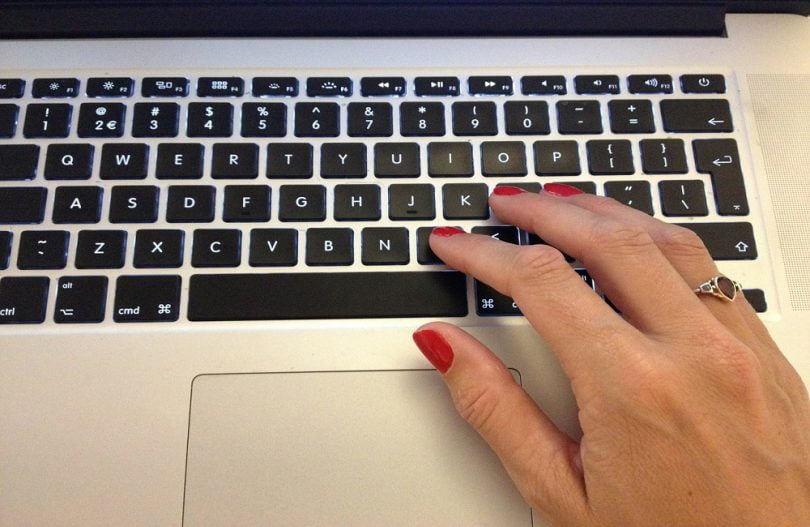I spent more than 12 years working as a staff reporter at a range of publications – from my local weekly paper to becoming the chief reporter at the Press Association. I had opportunities and experiences that saw me kicking myself to check I wasn’t dreaming – travelling to warzones with soldiers, interviewing royalty, covering major national events, or going to Las Vegas for the biggest consumer tech show in the world.
For years I declared I would never turn freelance. Why, when I was having all these adventures in the name of ‘work’ AND enjoying all the security of full-time employment? Of course, all the rock’n’roll stuff came with its fair share of mundane days. But why jack in such a great job – plus the benefits of full-time employment like a steady pay-check, pension, paid holiday – for a life of uncertainty?
I suppose the answer is freedom. For many different reasons, I wanted the freedom to choose what to write about, when to write about it, and who to write for.
That in itself sounds wonderful, and wonderfully simple. But let’s not forget that the mechanics of working as a freelance journalist are far more complex and challenging than simply choosing a subject, picking a publication, and writing.
Pros and cons
I’m a few months into freelancing, and the transition hasn’t been easy. I love it, but it’s not without its challenges. The key is being aware of those challenges and how to best tackle them so you can actually enjoy freelancing and take advantage of all the benefits it can bring.
The pros of freelancing revolve around flexibility, whether that be in subject matter, publication, working hours, working location. You don’t have a set holiday allowance, set working hours, managed lunch breaks, workplace rules. Hell, you don’t have a boss!
But don’t be fooled – for every pro there is a potential con. Yes, you don’t have a boss. You also don’t have a salary. If you don’t work, you don’t earn. So if you have images of flouncing around being creative in your pyjamas, remember that won’t pay the bills.
You don’t have set working hours, which means you can easily find yourself working from dawn until dusk, and you very quickly learn that you may be the harshest boss you’ve ever had. Also remember that as a freelancer you’re not just a writer, you’re a salesperson. You’re selling yourself, you’re selling your ideas. And when someone doesn’t like those, it can hurt.
The transition to freelance
The transition from staff to freelance has been harder than I had anticipated. It would have been tough anyway, but I sometimes wonder whether the fact I had spent more than a decade in secure staff jobs made it more of a shock to the system. I’m definitely no expert, but in these past few months I’ve learned how those 12 years have stood me in good stead for the jump to freelance, as well as the things I’m yet to learn.
Contacts and experience are the biggest bonuses I brought with me from my time as an employed reporter. Contacts are one of the most useful tools any journalist can have, whether in print or broadcast, news or features, and they are not easily gained.
You can’t ‘buy’ them like buying followers on Twitter. They’re hard-earned and closely-guarded. But if you value them, they tend to value you back. Contacts I hadn’t spoken to or heard from for years, or hadn’t even thought of as people to go to for opportunities, have reappeared in my life and been unexpected sources of work.
And even if not as a source of cold, hard cash, my contacts have been invaluable for advice and support at a time when I’ve needed it most in my professional life.
Experience is another vital tool and my 12 years in journalism have been infinitely more valuable than I had realised. I may not be the most experienced freelancer, but I am an experienced reporter. When people ask me for something, I generally know what they want and can work out how to deliver it – even if it’s not exactly along the lines of work I’ve done before.
New skills
But alongside discovering the advantages I’ve got, in these early days I’ve stumbled over the things I need to improve – new skills, new attitudes and improvement to some of my own personality traits. I’ve had to diversify.
I’d always written for newspapers, but earning a crust is sometimes about branching out and finding a balance between trying to do what you love and paying your bills. There are a myriad of ways to earn money as a writer and they may not necessarily be what you dreamed you would do, but I think if you asked any freelancer if every piece of work they undertake is their dream writing project, they’d say no.
I’m still not doing as much of what I really would love to do – writing creatively, writing longer-form pieces – but patience is a virtue as they say, and any dream takes time to achieve.
I’ve also had to grow a thicker skin. Never before in my life have I heard the words ‘no thanks’, or just been flat ignored, as many times as I have in the past three months. It’s hard, and no matter how much you tell yourself it’s not personal, it can feel that way. Again, patience is key. Everyone I have spoken to has said this – the word ‘yes’ will come, then it will snowball as you build contacts and gain experience.
From just a few months in the big, bad world of freelance journalism, I have learned that contacts and experience are invaluable, but so are confidence, tenacity, and the ability to get back up when you’re knocked down – and patience.
Medieval Persian poet Saadi once said:
“Have patience. All things are difficult before they become easy.”
That’s true of many things, and true of turning freelance as a journalist. But isn’t it usually those difficult things that are the most rewarding?
Ellen Manning is a freelance journalist and was formerly the Chief Reporter for the Press Association.









